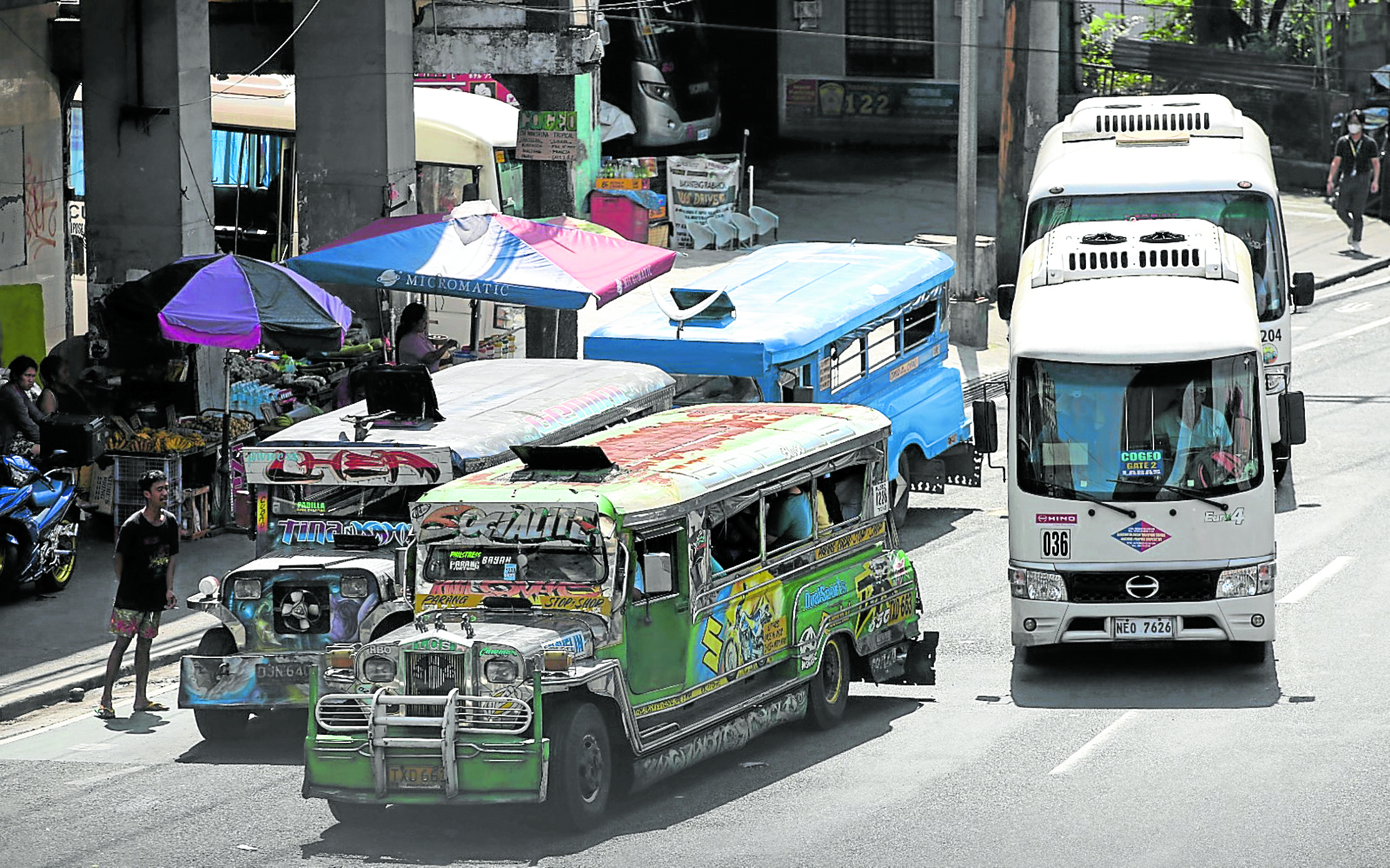MANILA, Philippines — Overlapping jeepney routes in Metro Manila which are deemed “inefficient” for drivers and commuters will be among the focus areas of a study to be funded by the Japan International Cooperation Agency (Jica), according to the Department of Transportation (DOTr).
The study will be part of its assessments of the Public Utility Vehicle Modernization Program (PUVMP), which is now being implemented after years of objections from various transport groups.
Transportation Secretary Jaime Bautista said on Wednesday the agency would conduct a three-year technical cooperation project funded by Jica to address the challenge of streamlining PUV routes, among others.
READ: End of the road? Jeepneys face uncertain future
“There really are a lot of issues [in the modernization program]… Rationalization is one issue,” Bautista told reporters at the signing ceremony for the project.
Under its agreement with the DOTr, Jica will review the data needed for the PUVMP’s implementation. Transport officials will be meeting with experts from Jica to review the capacity and management of Metro Manila roads for public transport and how the findings can be integrated into the PUVMP.
Avoiding ‘competition’
Rationalization, or modifying the jeepney routes to avoid overlapping and unnecessary “competition” among drivers in certain areas, is one of the key components of the PUVMP, which mainly seeks to phase out traditional jeepney models for more modern, Euro-4 units.
Commuter advocates have long cited overlapping jeepney routes as one of the contributors to an “unsafe and inefficient environment for public transport.”
Also under the PUVMP, jeepney franchise holders are required to consolidate themselves into cooperatives, a first step deemed necessary for the eventual streamlining of routes.
The window period for consolidation, after the deadline was moved several times, closed on April 30. As of May, the DOTr said it had recorded an 81-percent consolidation rate, accounting for more than 150,000 jeepney units.
Too small for co-ops
However, Bautista on Wednesday said there were still unconsolidated jeepneys plying minor routes in areas where the compliance rate remained low.
“There are routes that allow unconsolidated jeepneys, but they are in the small routes that only need four to five units (to meet commuter demand),” Bautista said. “These do not need consolidation.”
The PUVMP was launched in 2017 to “modernize” the country’s public transport system, mainly in Metro Manila,
Last year, an average of 3.63 million vehicles used the roads in the capital region daily, of which 95,659 were passenger jeepneys, according to data from the Metropolitan Manila Development Authority.
Funding, acquisition
The program was met with strong opposition and legal challenges from commuters’ and drivers’ groups, who warned it could put thousands of drivers out of work as cooperatives struggle financially to acquire the prescribed models.
Bautista said the DOTr project with Jica would also work on issues concerning funding and vehicle acquisition for the PUVMP.
“The project includes consolidation, financing, and actual acquisition of modern vehicles. There’s also a communication and social component that will be reviewed and studied by the DOTr and Jica,” he said. —with a report from Erica Ann C. Villasorda


